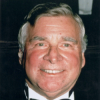Gene Roddenberry

Gene Roddenberry
Eugene Wesley "Gene" Roddenberrywas an American television screenwriter and producer. He is best remembered for creating the original Star Trek television series. Born in El Paso, Texas, Roddenberry grew up in Los Angeles, where his father worked as a police officer. Roddenberry flew eighty-nine combat missions in the Army Air Forces during World War II, and worked as a commercial pilot after the war. Later he followed in his father's footsteps and joined the Los Angeles Police Department where he...
NationalityAmerican
ProfessionNovelist
Date of Birth19 August 1921
CityEl Paso, TX
CountryUnited States of America
These are the voyages of the starship Enterprise, it's continuing mission to explore a strange new world, to seek out new life and new civilizations, to boldly go where no one has gone before.
Star Trek was an attempt to say that humanity will reach maturity and wisdom on the day that it begins not just to tolerate, but take a special delight in differences in ideas and differences in life forms. […] If we cannot learn to actually enjoy those small differences, to take a positive delight in those small differences between our own kind, here on this planet, then we do not deserve to go out into space and meet the diversity that is almost certainly out there.
For Star Trek proves, as faulty as individual episodes could be, is that the much-maligned common man and common woman has an enormous hunger for brotherhood. They are ready for the twenty-third century now, and they are light-years ahead of their petty governments and their visionless leaders.
We must question the story logic of having an all-knowing all-powerful God, who creates faulty Humans, and then blames them for his own mistakes.
If this is your God, he's not very impressive. He has so many psychological problems; he's so insecure. He demands worship every seven days. He goes out and creates faulty humans and then blames them for his own mistakes. He's a pretty poor excuse for a Supreme Being.
I condemn false prophets, I condemn the effort to take away the power of rational decision, to drain people of their free will - and a hell of a lot of money in the bargain. Religions vary in their degree of idiocy, but I reject them all. For most people, religion is nothing more than a substitute for a malfunctioning brain.
Star Trek says that it has not all happened, it has not all been discovered, that tomorrow can be as challenging and adventurous as any time man has ever lived.
It is the struggle itself that is most important. We must strive to be more than we are. It does not matter that we will not reach our ultimate goal. The effort itself yields its own reward.
We are on a journey to keep an appointment with whatever we are.
The glory of creation is in its infinite diversity.
The human race is a remarkable creature, one with great potential, and I hope that 'Star Trek' has helped to show us what we can be if we believe in ourselves and our abilities.
For most people, religion is nothing more than a substitute for a malfunctioning brain. If people need religion, ignore them and maybe they will ignore you, and you can go on with your life. It wasn't until I was beginning to do Star Trek that the subject of religion arose. What brought it up was that people were saying that I would have a chaplain on board the Enterprise. I replied, "No, we don't.
Its seems to me - it's likely that heaven's here right now. If you could take life with its pain and misery, where you fail and you sometimes win, and if you package it into a game, people would pay a fortune to have this game. And I don't know that I'd want it to be resolved so peacefully that the game would be all over.
Religions vary in their degree of idiocy, but I reject them all.